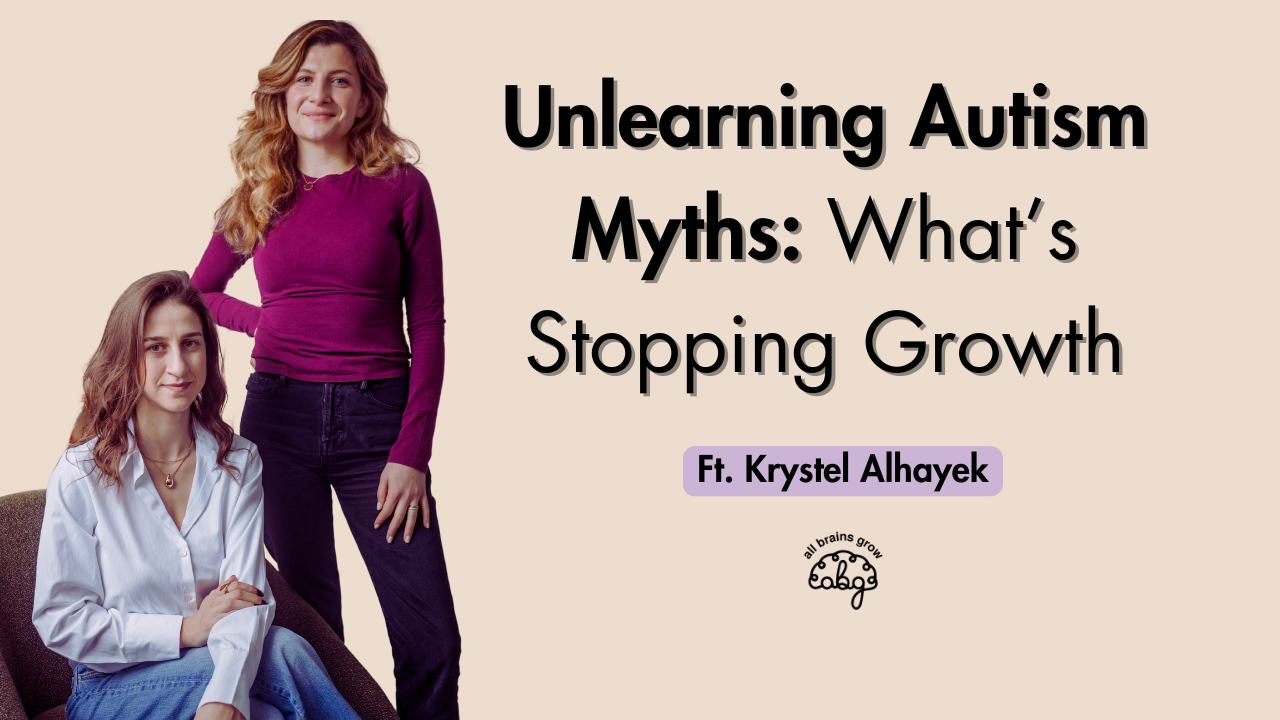Autism Myths or Inconvenient Truths? 5 autism beliefs that may be stopping growth

So much of what we’ve been told about autism is shaped by fear, outdated thinking, or a lack of real understanding. As parents, caregivers, or even professionals, it’s easy to fall into the trap of believing things that seem “normal” to say—but in reality, may be limiting the very children we’re trying to help.
In our latest podcast episode, I sat down with Krystel Alhayek to explore five of the most common autism myths we’ve encountered. Some came from well-meaning professionals. Others from society, friends, or even our own internal worries. But each one has the power to shape how we respond to autistic children—and how we shape their futures.
Here’s a quick look at the 5 myths we unpack in this episode:
-
“He’s autistic, so he’s just being difficult.”
→ Meltdowns aren’t misbehavior—they’re often signs of overwhelm, sensory overload, or communication struggles. Labeling them as “difficult” leads to disconnection, not support. -
“If she doesn’t make eye contact, she’s not listening.”
→ Eye contact can be uncomfortable or even painful for many autistic individuals. Listening and engagement happen in many ways—and eye contact isn’t the only (or best) indicator. -
“Autistic people always need to be supervised.”
→ Independence looks different for everyone, but assuming constant supervision is always necessary denies autistic individuals the chance to grow, take risks, and build autonomy. -
“They’re all geniuses.”
→ While some may have remarkable abilities, autism exists on a wide spectrum. Each person has unique strengths and challenges—just like anyone else. This myth places unrealistic pressure on autistic individuals to “perform” in order to be accepted. -
“They need to be fixed to live a happy life.”
→ Autism isn’t a disease—it’s a different way of being. True happiness comes from acceptance, support, and freedom to be oneself, not from trying to "fix" or mask their true identity.
We end the episode with a powerful reminder: Happiness doesn't mean conformity. It means creating space for your child to live fully, in a way that feels right for them.
This episode is for the parent who’s just starting out, the professional who’s ready to listen deeper, and anyone willing to challenge the narrative in order to make room for something better.
Because when we unlearn harmful myths, we make space for real growth—for our children and for ourselves.
